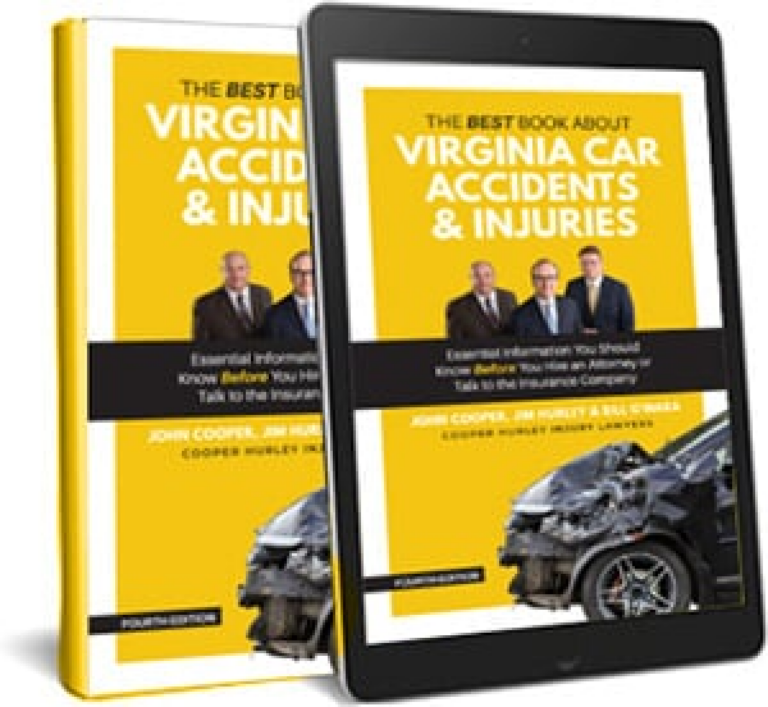Virginia Boat Accident Lawyer
Every year, Hampton Roads boating and maritime accidents claim lives and injure seamen and others working on the navigable water-ways like rivers, the Chesapeake Bay, and off the coast of Virginia. The Tidewater area is surrounded by bodies of water. The City of Norfolk is bordered by the Elizabeth River to the south and west, and the Chesapeake Bay to the north. Virginia Beach, which has direct access to the Atlantic Ocean and the Chesapeake Bay, is home to 40,000 recreational vessels, not including visiting boats.
On This Page
Every day, many big commercial ships arrive at facilities like Norfolk International Terminals, Newport News Marine Terminal, Portsmouth Marine Terminal and APM Terminals, making Hampton Roads one of the busiest container ports in the country.
Norfolk is home to Naval Station Norfolk, the largest military naval base in the world. Norfolk, Hampton, and Virginia Beach are the homes of many recreational boaters. If you or a loved one was injured while you were out on a boat or another vessel, you may have grounds to sue the pilot of the boat or another boat operator with the help of an experienced Virginia boating accident lawyer with Cooper Hurley Injury Lawyers.
Recreational Boating Accidents
There are hundreds of boating accident deaths each year in the United States, including in the waters around the Virginia area. Even minor injuries after a boating accident can become dangerous when the injured person is far from medical care. In 2012, the U.S. Coast Guard recorded 4,515 accidents that involved 651 deaths, 3,000 injuries and about $38 million dollars of damage to property as a result of recreational boating accidents.
Boating accidents can happen while sailing, canoeing, motorboating, tubing, fishing, water skiing, and more. Common causes of Virginia recreational boat accidents include:
- Lack of attention
- Excess speed
- A failure to follow navigational rules
- Improper lookout
- The use of alcohol and drugs
- Inadequate training and operator error
- Boat overcrowding
- Colliding with rocks, sandbars, or docks
Drunken Boating
Many recreational boating accidents occur after boaters have been drinking in the hot sun for hours.
The same rules apply to boaters as to motorists for drunken operation. According to the Virginia Department of Game and Inland Fisheries, the law for operating a motorboat is very similar to that of driving a motor vehicle. Boaters with a BAC of 0.08 or more are not allowed to operate a watercraft. The law also applies to other narcotics or illegal drugs.
If you are operating a boat with a BAC of 0.10 or above, you are more than 10 times as likely to be killed in an accident, according to the U.S. Coast Guard.
Accidents Involving Jet Skis
Jet skis or personal watercraft are one of the most dangerous types of vessels used on the waterways. The speed of jet skis, the common lack of experience of operators, and lack of protection for riders make them accidents waiting to happen. Common injuries from jet ski accidents that often warrant contacting a Virginia recreational boat accident attorney include:
- Traumatic brain injuries
- Broken bones
- Spinal injuries
- Amputations
- Fatal injuries
Potential Damages After a Recreational Boat Accident
Every case is different, and the damages for which you could be compensated depend on the extent of your injuries and their effect on the rest of your life. Economic damages include damages with a clear monetary value such as medical bills, lost wages, and the destruction of property. Non-economic damages covers items such as pain and suffering, loss of enjoyment in life, scarring or deformity, and the inability to engage in beloved pastimes or activities.
According to Virginia Code §8.01-44.5, operators acting under the influence of alcohol or drugs and who cause an accident and someone else’s injuries may be liable for punitive damages.
If you are hurt on the water on what was supposed to be a fun trip, contact a Virginia recreational boat accident lawyer as soon as possible. We could help collect evidence to build a strong case and work toward the maximum possible amount of compensation for the harms you suffered.
Accidents at Marinas
A marina fire in Urbanna, Virginia in 2016 claimed two lives and destroyed more than 50 vessels, highlighting the dangers at marinas where combustible materials are often stored.
There are numerous marinas all around Virginia, like in, Virginia Beach, Norfolk, Portsmouth, Hampton, and Newport News as well as in northeastern North Carolina. About 75 privately owned marinas dot our region from Gloucester, VA, to Hatteras Island, N.C.
Boaters can be particularly vulnerable in situations such as refueling. A marina may be liable under the law of premises liability if unsafe conditions led to a boating accident with injuries or fatalities.
Maritime and Admiralty Law
Mariners who are hurt at sea fall under a complex set of maritime and admiralty laws that are made up of statutes and past case decisions related to disputes on navigable waters. The definition of “navigable waters” is all bodies of water that can be used for interstate or foreign commerce and can include smaller creeks and bodies of water that can surprise you. Even pleasure craft accidents can involve this old Federal law.
When maritime law is applicable, the cases are heard in federal court under Article III, Section 2 of the U.S. Constitution. Although injured seafarers may elect to file suit in Virginia state courts, federal law will still apply and the defendant has the option to move the case to federal court. The U.S. District Court for the Eastern District of Virginia is known as a historically important venue for maritime lawsuits.
Some relevant terms applicable to maritime or admiralty law include:
- Jones Act Claims
Irrespective of whether you were working on an oil rig, a tug boat or a ferry, you could bring an action under the Jones Act if you were injured due to the fault of another party. The Jones Act was introduced in 1915 and allows seafarers to bring a personal injury claim against a negligent employer, crew member, officer, agent or another party.
- Maintenance and Cure
Seamen or commercial fishermen have a right to gain maintenance and cure from their employer if they are injured. Unlike under the Jones Act, the employer does not have to be negligent. Maintenance and cure is more like workers’ compensation.
- Unseaworthy Vessels
Maritime law puts the burden on the owner of a vessel to maintain it in a seaworthy condition. If the machinery or any other part of the vessel is defective, an injured crew member can make a claim for damages under general maritime law.
Third-Party Claims by Shipyard Workers, Stevedores, or Longshoremen
Injured workers in the maritime industry may make an additional claim under maritime law, even if they make a workers’ compensation claim, under certain circumstances.
If you were hurt in an accident on a vessel, even if it was docked, and it was caused by the negligence of the vessel’s crew or a hazardous condition on the ship, you may also have grounds to file a third-party maritime claim for the damages you suffered.
Importance of a Virginia Boat or Admiralty Accident Lawyer
If you were injured due to the actions of a recreational boat owner or pilot, the negligent or reckless handling of another vessel, at an unsafe marina, or as a seafarer or dockyard worker, our experienced Virginia boat and maritime accident attorneys can help you.
Having a skilled lawyer on your side is usually critical to achieving the maximum possible success in a claim. Our Virginia attorneys are experienced in utilizing expert witnesses and medical providers who can analyze and prove the at-fault party’s liability and your injuries.
If you are seriously injured in a boat or maritime accident, do not hesitate to contact Cooper Hurley Injury Lawyers for your free consultation today. Having our dedicated attorneys on your side could make the difference in your case and help bring your family the assistance you need.
Find Out What Your
Case is Worth
Testimonials



Free eBook

Get a free copy of “The Best Book About Virginia Car Accidents & Injuries”
Learn what to do after an accident, how to deal with insurance agencies, and when to get help. Download your free copy of The Best Book About Virginia Car Accidents & Injuries.

